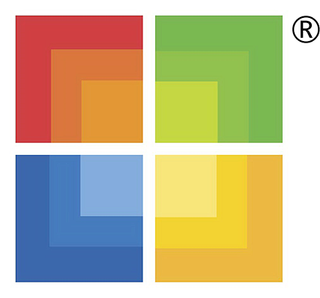Microsoft Suspends Win 7/8.1 Updates For Intel Kaby Lake, AMD Ryzen CPUs

Microsoft suspended updates for Windows 7 and Windows 8.1 users with Intel's 7th generation (Kaby Lake) processors, AMD's 7th generation (Bristol Ridge) processors, and Qualcomm's 8996 processor or newer. The company said before that it wouldn't release new drivers for older Windows versions to support new hardware, but now it's stopped Windows 7 and Windows 8.1 users with these new CPUs from scanning or downloading from Windows Update.
The decision makes sense for Microsoft. Windows 7 debuted in 2009, and Windows 8.1 was released in 2013. Neither was made with current generation processors in mind, and in the years since, Microsoft has shifted its focus away from those older operating systems and towards Windows 10. But as we explained in our review of Intel's Kaby Lake lineup after we experienced problems with HD Graphics 630 on both Windows 7 and Windows 8.1:
This may be a minor concern to enthusiasts who already keep up to date. But the estimated 47% of worldwide computer users who still use Windows 7 (and the 8% on Windows 8.1) need to account for the cost of Windows 10 as part of a Kaby Lake upgrade. Microsoft allows a limited number of component changes before invalidating your OS license, so it is a valid concern if you plan to upgrade an existing system with a 100-series chipset. It's noteworthy that Microsoft's official mainstream support for Windows 7 expired in January 2015, but the company has obviously not convinced a majority of users to upgrade. Interestingly, Microsoft still offers 'mainstream support' for the unpopular Windows 8 until Jan 2018, though that's misleading since it isn't supporting modern processors with the OS.
Not that Microsoft hasn't tried to warn those people about its decision. The company said in a January 2016 blog post that it would only support new silicon with Windows 10--older operating systems would be restricted to older processors. Here's what the company said about its plans:
Going forward, as new silicon generations are introduced, they will require the latest Windows platform at that time for support. This enables us to focus on deep integration between Windows and the silicon, while maintaining maximum reliability and compatibility with previous generations of platform and silicon. For example, Windows 10 will be the only supported Windows platform on Intel’s upcoming 'Kaby Lake' silicon, Qualcomm’s upcoming '8996' silicon, and AMD’s upcoming 'Bristol Ridge' silicon.
Microsoft reiterated that point in August 2016. The question is how many Windows 7 and Windows 8.1 users read the company's blog posts--many of which are unlikely to appeal to the average consumer--or care about the company's seemingly arbitrary decision not to update currently supported operating systems to support the latest-and-greatest processors. And the problem is exacerbated by the company's messaging via Windows Update.
Windows 7 and Windows 8.1 users with new processors who try to scan or download updates via the Windows Update tool are greeted with one of two messages. The first is straightforward: "Unsupported Hardware [...] Your PC uses a processor that isn’t supported on this version of Windows and you won’t receive updates." The second message isn't quite as clear:
Stay on the Cutting Edge
Join the experts who read Tom's Hardware for the inside track on enthusiast PC tech news — and have for over 25 years. We'll send breaking news and in-depth reviews of CPUs, GPUs, AI, maker hardware and more straight to your inbox.
Windows could not search for new updatesAn error occurred while checking for new updates for your computer.Error(s) found:Code 80240037 Windows Update encountered an unknown error.
So the company published a support article to explain that the way its new support policy was implemented means that "Windows 8.1 and Windows 7 devices that have a seventh generation or a later generation processor may no longer be able to scan or download updates through Windows Update or Microsoft Update." The company (naturally) advised users affected by this problem to upgrade from their current operating system to Windows 10.
If you planned to upgrade to Kaby Lake, AMD's Ryzen, or another new processor, then you'll also finally have to move to Windows 10. This might have been implied by Microsoft's previous statements--it has repeatedly said that Windows 10 would be the only operating system to support the new processors--but now it's clear that some people didn't get the message (hence the support article) and that "will require the latest Windows platform at that time for support" really means "you won't even be able to search for updates if you buy a new CPU without moving to Windows 10."

Nathaniel Mott is a freelance news and features writer for Tom's Hardware US, covering breaking news, security, and the silliest aspects of the tech industry.
-
illegaloperation Totally a non-issue.Reply
Windows 10 still accepts keys for Windows 7 and Windows 8.1 -
My message to MS. F. you and btw there are other ways to get updates ;) Again my message to MS. clear and loud f. you and i will never install your pile of crap called Win10 which is btw f. epic failure as only 25% of total Windows Machine have installed it. And again f. you MS. Btw...MS thinks they will force people to Win10 pile of crap by doing this shit...ain't going to f. happen.Reply
-
IceMyth Windows 7 is the last OS i will get from MS. Any new CPU/build for me will use Linux/Mac and mainly it will be for productivity things. Also, what is the % of people who installed/upgraded Win10 on purpose and still using it not people who bought laptop with Win10.Reply -
ahnilated Well this could very well be illegal. The agreement they post states the OS will be supported for a number of years yet. Them doing this could very well get the sued and I hope they lose.Reply -
dstarr3 Reply19434764 said:Well this could very well be illegal. The agreement they post states the OS will be supported for a number of years yet. Them doing this could very well get the sued and I hope they lose.
Microsoft are a very litigious company and go to great lengths to protect themselves from possible legal threats. So I'm sure somewhere in their press releases and things are a couple well-placed adjectives that make this legal. It's nothing an ordinary human could detect, but put it in the hands of a lawyer, and it's a perfectly legal scumbag move. -
Yes. As I said what they did is just f. unethical. Ryzen and Kaby Lake work fine on Windows 7 and they work better than on Window 10. Everything works better on Windows 7.Reply
-
captaincharisma windows 7 is close to being 10 years old. you can't expect old technology to run everything forever.Reply -
Felds Its microsoft fault... Windows 10 fails to deliver.. In certain areas...Reply
i have a 5820k and 16gb of ram.. And windows 10 is a lot of the time running weird stuff on the background. Running a abnormal use of my cpu sometimes and my internet using 20 or 30 mbps out of the blue with 0 downloads going....
I also get too many crashes for my taste so went back to 7...
They didnt deliver as well as they did with win xp or windows 7... -
Sir3x6 So glad I have a Haswell CPU after last week nightmare with Windows 10. It tried to corrupted a mirrored harddrive. No usb drives or backup drives have not been working for along time or window 10 said they were faulty and tried to repair them by corrupting them. It kept trying to install an old sound driver that doesn't work through windows updates, even thou I had installed the latest drivers. Toolbars stop working and I would have to fix them manually. Parts of third programs would just stop working and no way to fix them. After Updates microsoft programmes would not work and need fixing. I have tried fresh install's of Window 10, about have given up reinstalling window 10.Reply
So after 18 months of Windows 10 getting worse with each and every update, I have gone back to windows 7. One of two os microsoft have ever got the run right (the other XP). Everthing now runs fine.
Given the fact that 47% of computer still run Window 7 and others are still using Windows 8 (another bad OS) over Windows 10. Should ring alarm bells at microsoft suggesting that it is something wrong with windows 10. Specially after rolling out Windows 10 too them user for free. It has some nice features, but it is so unstable it is unbelievable.
I will stick with Windows 7 and Haswell. And hope Microsoft see the white elephant in the room, but they haven't for years. So little hope there.
Most Popular

